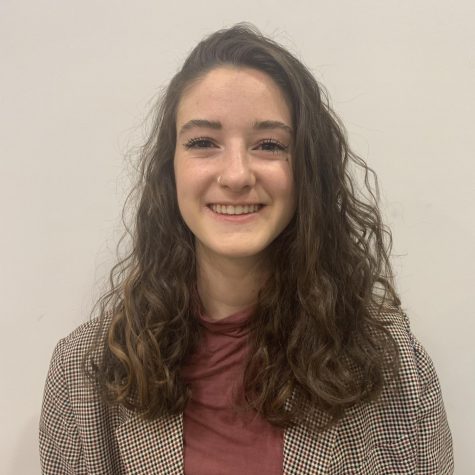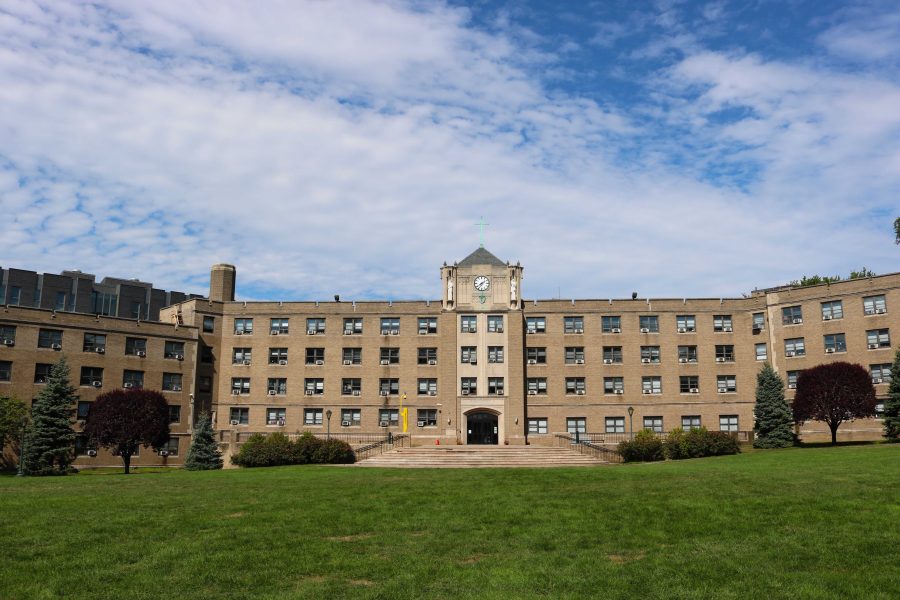Fordham’s Dorming Restrictions are Heterodormative
Picture this; it’s a Wednesday night, and you get a text from your boyfriend that he wants to come visit this weekend. He goes to school about four hours away and, to make the trip worthwhile, wants to stay Friday and Saturday night.
While the prevailing emotion in this instance should be excitement, a large portion of Fordham students may also experience mild irritation, not because they hate their boyfriends, but because the visit requires enduring a number of mildly awkward interactions.
In order to have an overnight guest of the opposite sex, you must first scroll through your contacts and select a boy who lives in your dorm, is around the upcoming weekend and doesn’t mind being moderately inconvenienced.
Once you’ve selected your victim, you have to drag him down to the RA’s office to get a guest pass, where he must stand awkwardly in the corner of the room while you provide your boyfriend’s life story. Finally, on the night of your significant other’s arrival, said boy must come down and sign him in.
It is easy to read the above anecdote and understand the explicit effects of Fordham’s dorm policy prohibiting overnight visitors of the opposite sex. The guest procedures are a nuisance which inconvenience already busy college students. For most undergraduates, the impacts are obvious and palpable, and a large number of complaints are made against the hassle of the procedure.
However, the broader and more adverse effects of the policy are implicit in nature and, therefore, talked about far less. The dorm policy cultivates a heteronormative environment, influencing not the actions, but the attitudes of the Fordham community.
To recognize the implicit marginalization imposed by the dorm policy, one must first understand the intentions behind its enforcement. As stated on Fordham’s website, under the section “Moral Growth and Responsibility” and in bold type, “One such principle holds that sexual intercourse is to be reserved for marriage. Cohabitation is therefore prohibited in the residence halls.”
The guest policy is an extension of Catholic doctrines. Fordham authorizes only same-gender overnight visitors. In doing so, they make two wrongful assertions: the first being that all male and female relationships are sexual in nature, and the second that only pairs of men and women have sex.
These declarations are not just erroneous, they are also extremely harmful. Not all overnight guests are engaged in a current sexual relationship with their host. Many students have strong platonic ties to members of the opposing gender.
It is hard enough to maintain friendships with people from home after going to college without added restrictions on who can and cannot visit. Fordham is in many ways “gendering” friendship by restricting companionship to those of the same sex. Communication between males and females is a positive force for creating understanding and encouraging empathy. Fordham should recognize and support these relationships, not make efforts to prevent their occurrence.
The second declaration is equally harmful. Trying to prevent only heteroxexual premarital sexual relations fails to acknowledge that homosexual relationships, and therefore homosexual people, exist. Fordham’s dorm policy operates in a heteronormative bubble. It revolves only around its straight student body, fostering a worldview in which heterosexuality is the normal or “default” sexuality. Heteronormativity, a phrase first coined by Michael Warner in his book, “Introduction: Fear of a Queer Planet,” creates a sense of “otherness” amongst LGBTQ+ youth.
The constant and consistent recognition of only straight relationships and people is an assertion that those who are not engaged in these relationships, or identify as something other than heterosexual, are abnormal.
These prevailing attitudes often elicit a feeling of shame for members of the LGBTQ+ community, even amongst those with the most supportive families.
While Fordham has a number of LGBTQ+ resources, such as the ally network and the PRISM retreat, it cannot expect to foster a sense of inclusiveness for this population until their existence is acknowledged in all aspects of the school’s policies.
While the dorm procedures are not a direct or visible attack on the LGBTQ community, as they do not explicitly disapprove of their existence, they create a divide and sense of otherness on campus. Fordham should abandon the current visitation policy, allowing for opposite sex companionship and ceasing the marginalization of its LGBTQ+ students.
Rachel Gow, FCRH ’22, is undecided from Worcester, Massachusettes.

Editor in Chief for Volume 103
Culture Editor for Volume 101, Volume 102.
Rachel Gow is a junior at Fordham College at Rose Hill, majoring in Journalism...








































































































































































































